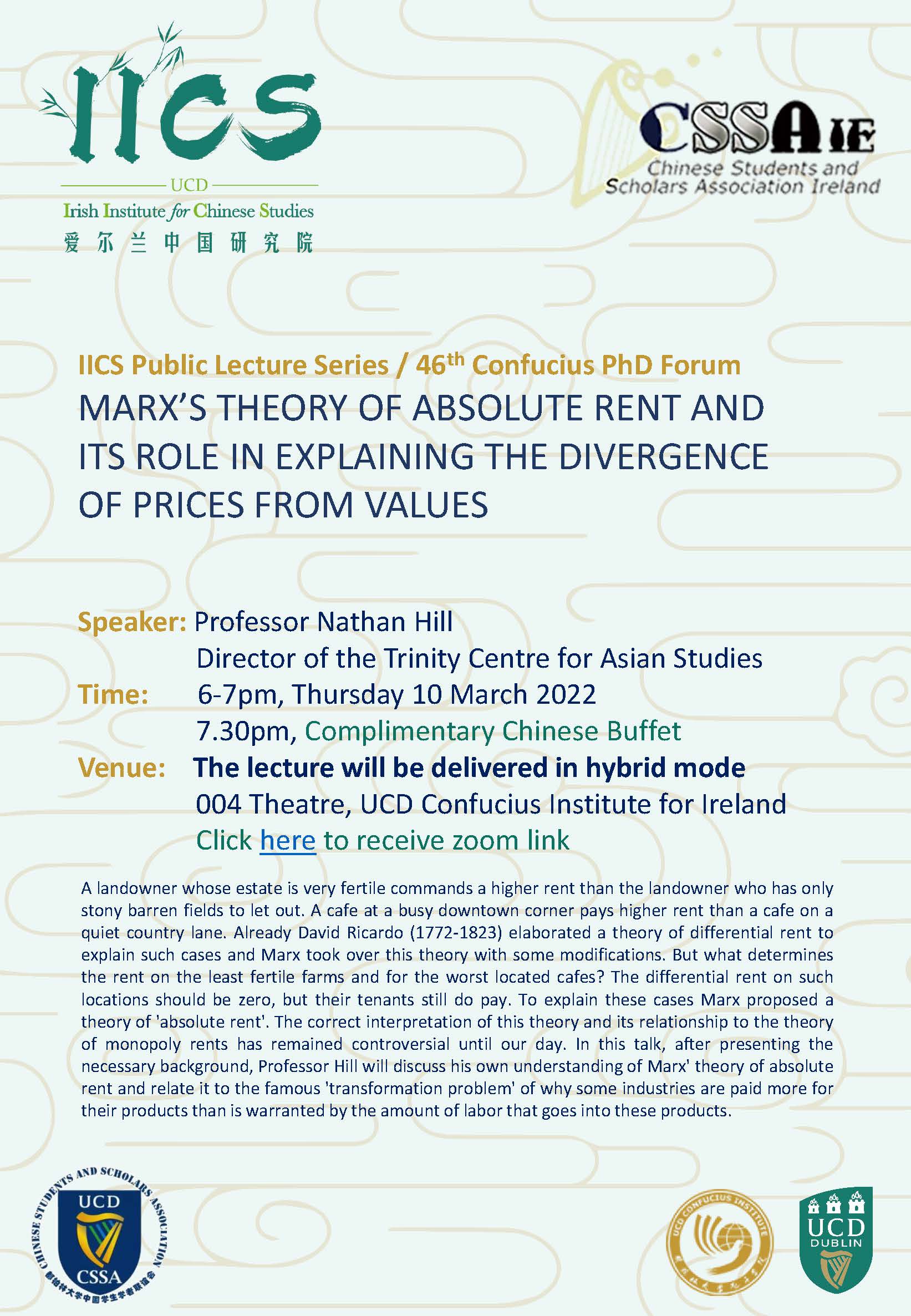Marx's Theory of Absolute Rent and its Role in Explaining the Divergence of Prices from Values
A landowner whose estate is very fertile commands a higher rent than the landowner who has only stony barren fields to let out. A cafe at a busy downtown corner pays higher rent than a cafe on a quiet country lane. Already David Ricardo (1772-1823) elaborated a theory of differential rent to explain such cases and Marx took over this theory with some modifications. But what determines the rent on the least fertile farms and for the worst located cafes? The differential rent on such locations should be zero, but their tenants still do pay. To explain these cases Marx proposed a theory of 'absolute rent'. The correct interpretation of this theory and its relationship to the theory of monopoly rents has remained controversial until our day. In this talk, after presenting the necessary background, Professor Hill will discuss his own understanding of Marx' theory of absolute rent and relate it to the famous 'transformation problem' of why some industries are paid more for their products than is warranted by the amount of labor that goes into these products.
Speaker: Professor Nathan Hill, Director of the Trinity Centre for Asian Studies
Time: 6-7pm, Thursday 10 March 2022
Venue: The lecture will be delivered in hybrid mode
004 Theatre, UCD Confucius Institute for Ireland; Please register (opens in a new window)here
Click (opens in a new window)here to receive zoom link
